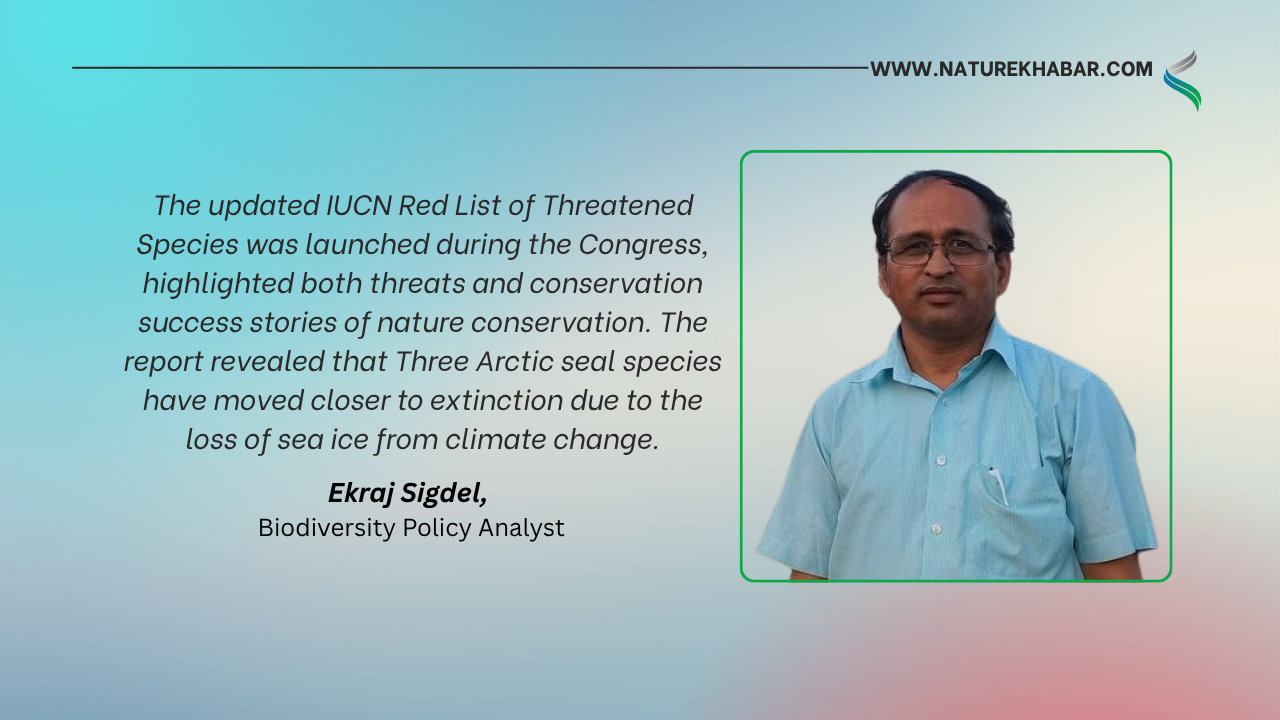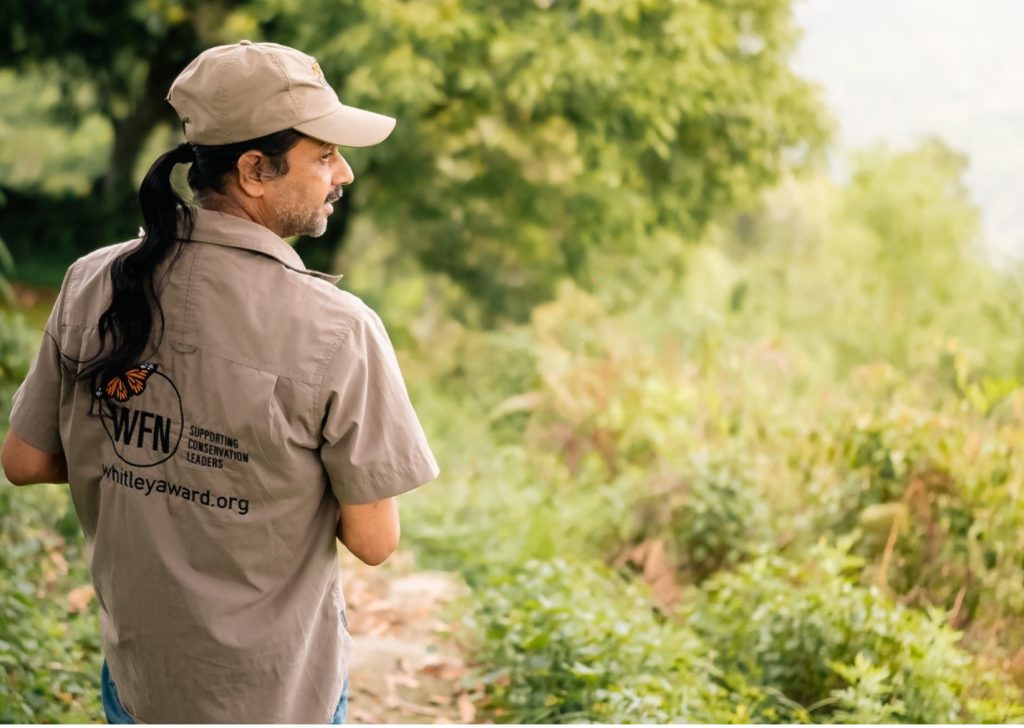Key Takeaways for Nepal from the IUCN World Conservation Congress 2025
- Nature Khabar

Ekraj Sigdel,
Over 10,000 participants from more than 160 countries representing governments, civil society, Indigenous Peoples’ organizations, academia, and the private sector converged in Abu Dhabi to advance Nature-based Solutions at the week-long IUCN World Conservation Congress which was concluded on 15 October 2025.
The Congress rightly identified Nature-based Solutions as the key to achieving three priority global commitments: the Paris Agreement, the Global Biodiversity Framework, and the Sustainable Development Goals (SDGs).
Dr. Grethel Aguilar, Director General of IUCN emphasized that “Nature-based Solutions are central to tackling climate change, biodiversity loss, and sustainable development.” The Congress unveiled updated IUCN Red Lists, celebrated conservation achievements, emphasize on need of greater collaboration along with the innovative finance for advancing nature based solution.
The updated IUCN Red List of Threatened Species was launched during the Congress, highlighted both threats and conservation success stories of nature conservation. The report revealed that Three Arctic seal species have moved closer to extinction due to the loss of sea ice from climate change.
Similarly, over 60% of bird species worldwide are declined because of their habitat loss and degradation. Encouragingly, the report upgraded the population of green turtle Endangered to Least Concern. “While species like Arctic seals and many birds face growing threats, the recovery of the green turtle reminds us that conservation works when we act with determination and unity” said Dr. Grethel Agular, Director General of IUCN.
The World Conservation Congress, 2025 celebrated global achievements in conservation, highlighting the power of Nature-based Solutions (NbS) and innovation for tackling the issues of climate change, biodiversity and sustainable infrastructure development.
The Congress awarded 24 new green list standard protected areas across 13 countries and appreciated people behind them including rangers, site managers, experts, and communities. Also, the Congress, applauded the role of Panama government towards institutionalizing Other Effective Area Based Conservation Measures (OECM) through formulating Country Dossier and Bhutan for enactment of Biodiversity Act, 2022.
Mongolia showcased exemplary NbS practices in rangeland restoration and dryland management. Further, The Congress launched the Second Edition of the IUCN Global Standard Guideline for nature based solutions. It also honored through handing over International Ranger Awards and convened the World Summit of Indigenous Peoples and Nature, Youth Summit, and Philanthropy for Nature Summit, reflecting collaboration and unity.
The IUCN World Conservation Congress 2025 underscored the critical role of financial innovation in scaling up Nature-based Solutions (NbS) through trust-based philanthropy, innovative financing mechanisms, and cross-sector collaboration.
The Congress has encouraged the participant countries to advance the nature based solution through accessing GEF-9, the GEF Civil Society Organization (CSO) Challenge Program, and the Global Biodiversity Framework Fund (GBFF).
It was emphasized that advancing Nature-based Solutions (NbS) demands stronger collaboration and coordination among diverse sectors, institutions and stakeholders. Through synergistic efforts of governments, civil society, Indigenous Peoples’ organizations, women, youth, and local communities, we van realize the IUCN’s vision of a just world that values and conserves nature. Central to this effort is IUCN’s commitment to transparency, equity, and shared learning, ensuring that cooperation across sectors translates into real, lasting benefits for both people and the planet.
Nepal presented experiences on innovative approaches to human–wildlife conflict mitigation through Nature-based Solutions (NbS), innovation in inclusion of the Taplejung–Panchthar–Ilam Corridor as a Transboundary OECM in the report “Scaling Up: Conservation in a Connected World.” By demonstrating its capability to deliver NbS that benefit vulnerable communities efficiently and effectively, and by promoting integrated conservation initiatives, Nepal had the opportunity to further strengthen its global leadership in advancing Nature-based Solutions to address both environmental and societal challenges.
Key Takeaways for Nepal from the Congress include the need to strengthen inclusive nature based solutions among government institutions, women, youth, GenZ and Indigenous Peoples.
Accelerating the early approval and implementation of the OECM Plan of Action and Guideline by the government of Nepal and implementation initiation through , undertaking the feasibility of recognizing the Taplejung–Panchthar–Ilam corridors as Transboundary OECMs can help position Nepal as a regional leader in Nature-based Solutions (NbS). Promoting collaborative and diversified governance that engages multiple stakeholders including youth, GenZ, women, Indigenous Peoples, and the private sector in nature conservation will further elevate Nepal’s image in global arena. Together, these efforts and improved access to global conservation funds can position Nepal as a champion of Nature-based Solutions, leading by example on the world stage.





Feedback